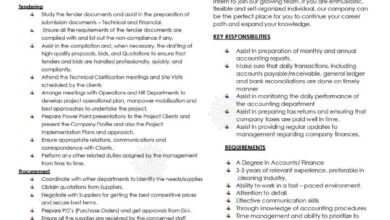Know What Constitute Constructive Dismissal In Botswana

Everyday people are getting laid of work, and in certain instances it is unfair dismissal. Since most workers are not aware of their rights,they accept their fate without fighting. There are three types of dismissals recognized in employment law. The most common one being constructive dismissal which this article is based on.
This is another form of termination of employment dispute which may be considered unfair, depending on the circumstances of each case.
The law places the onus on the employee to amongst others:
*Establish the existence of the dismissal
*Prove that the actions of the employer were designed to render employment relationship intolerable, and that
*The employee took some steps to resolve the problem before abandoning employment or resigning.
The employer on the other hand must prove that the dismissal was fair once existence of dismissal has been established.
The Test Or Standard Of Proof
Constructive dismissal is proved on a balance of probabilities. An employer is only required to prove the facts on a balance of probabilities.
This means that it must not merely be possible that the employee committed the offence, but probable that the employee committed the offence.
The court will then examine the conduct of the employer rather than the subjective feeling of an employee.
The employee must on the other hand prove that when abandoning his work or resigning he intended terminating employment relationship and that the circumstances were so unendurable that resignation was justified.
All the remedies including using the company grievance procedure must have been exhausted before the decision to resign or abandon is resorted to.
Relief Remedies
Once the court has established that the dismissal was unfair or that the conduct of an employer amounted to unfair labour practice, the arbitrator may:
Order reinstatemenrt; Order re-employmen; Order to pay compensation for not more that 12 months for unfair dismissal and not more that 24 months for unfair labour practice.
Compensation for unfair dismissal, i.e. absence of both substantive and procedural fairness, entitles an
employee to the entire remuneration including the benefits.
Victims of unfair constructive dismissal can be awarded compensation by virtue of the arbitrators’ general powers to issue an appropriate award.
Limitation on Compensation.
Compensation for substantive and procedural unfairness must be just and equitable in all circumstances and has to be paid at the employee’s rate of remuneration at the date of dismissal.
If an employer offers unconditional re-instatement during the conciliation proceedings and the employee rejects the offer,compensation can be denied.
Where an employee has been guilty of a serious misconduct against the employer and the employee is highly qualified and the employer procedural lapse was not serious, the court can decide not to compensate the employee.
Examples Of Unfair Constructive Dismissal:
*Abandoning employer’s work after employee being threatened for inviting the Department of Labour to investigate working conditions.
*Abusive, harsh, antagonistic treatment by an employer. However, a single incident is not justifiable.
* Intolerable working condition
*Advised to resign with a promise of promotion or alternative employment.
*Failure to pay employee’s wages in terms of the contract and to supply work consummate with job description.
*Employer treating employee vindictively in the last two months of a fixed-term contract.
*Employer pressing trumped up charges against employee with an intention of securing employee’s dismissal.
*Dismissed for failing to meet unreasonable sales target.
* Employee with a new born child forced to work night shift.





